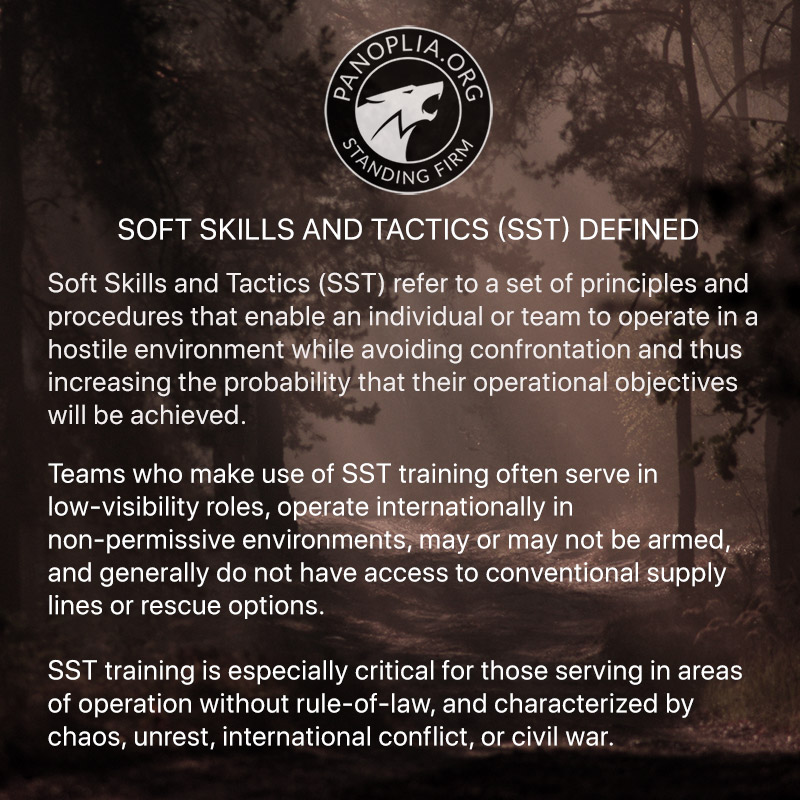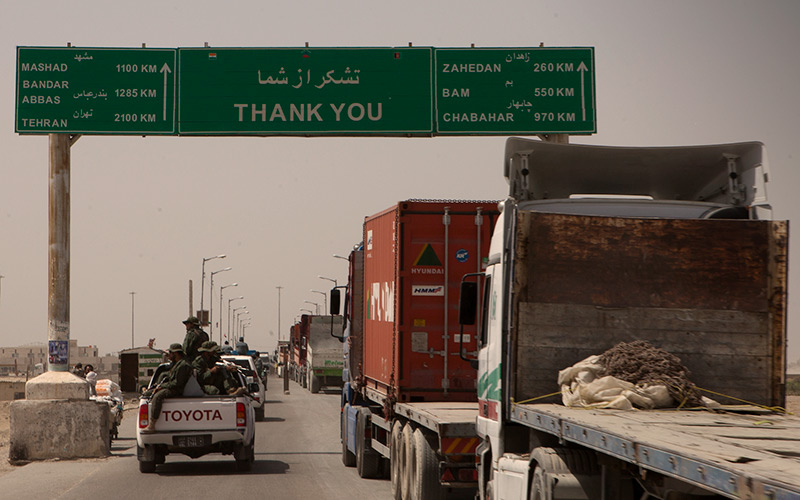The Merriam-Webster dictionary defines the word objective as, “Something toward which effort is directed.” There’s no question that objectives vary in levels of importance. Not achieving some objectives may have few if any consequences. In other circumstances not achieving one’s objectives may cost many lives.
You may have noticed that our definition of Soft Skills and Tactics includes the word objective. This can be seen in the image below:

In the context of SST, objectives are generally of the more consequential type. For example, people in a location deep within the jungles of Southeast Asia may have suffered a natural disaster. Thousands are perishing daily from disease and starvation. Humanitarian groups are trying to reach these people with food and medical supplies, yet between them and the disaster, armed groups oppose their efforts. Soft Skills and Tactics may be used in such circumstances to avoid confrontation and enable the humanitarian groups to achieve their objective of delivering food and medicine.
Military history is replete with examples of objectives being met or missed. For example, during World War II, especially in the Pacific theatre, taking a hill on a small island was often an objective for fighting forces. They used Hard Skills and Tactics to achieve their objective. If enemy forces stood between them and the hill, fierce bombing efforts followed by intense firefights would be waged until the objective could be taken.
And yet, there are also times during which Soft Skills and Tactics need to be used to achieve military objectives. For example, the objective may be for a small team to climb a hill to observe enemy troops and report back on their strength and movements. Under such circumstances, it’s critical for the team to avoid confrontation. If they see enemy guards, rather than engaging them in a confrontation, they seek to quietly maneuver past them without being seen. If they are discovered and a confrontation follows, their objective is not met. This may cost the lives of many in the operation that follows.
The point is, it’s generally the case that avoiding confrontation is the goal of Soft Skills and Tactics so that a more important objective can be met. At times, this may mean that one has to put aside his or her normal tendencies. Here’s a good example.

You and a small team have been tasked with entering a country in order to achieve a certain objective. This involves crossing an international border through the normal border-control checkpoint. You’re in civilian clothes and traveling on civilian passports. During this process, the border guards don’t like the look of some of your team members. Perhaps they feel threatened by the fact that a few look to the guards like military or law-enforcement personnel out of uniform. Feeling insecure, and wanting to flex their authority, the guards talk down to these team members in a demeaning and challenging manner. They do so for the purpose of provoking a response that would ensure the team members could be turned back. Better yet, perhaps one of those seeking entry will respond with a degree of violence and thus could be arrested.
Now, imagine that you’re one of the team members who’s being verbally abused by border guards who weigh little more than 130 pounds, and who don’t look like they could defend themselves against your teenage daughter on their best day. I’ve been in this situation a number of times. I can tell you from personal experience that it takes a great deal of restraint and patience to calmly and professionally comply with the instructions of border guards like these as they order you around like a child. A situation like this is especially challenging when several of the individuals on your team are current or former members of elite military units. It goes without saying that such people are not used to being provoked, and it takes an incredible degree of self-control to not respond to hostility with aggression.
If you find yourself in a situation like this, you need the training and ability to be able to identify this as an obstacle. This is not your objective. Your operational objective is beyond this point. You need to get past this temporary obstacle in order to have a chance to move on toward your operational objective.
Part of mastering Soft Skills and Tactics is cultivating the ability to control one’s emotions in difficult situations in order to discern the difference between an obstacle and the greater objective. If during the border-crossing situation outlined above you’re unable to control yourself and an aggressive confrontation takes place, your operational objective will likely remain unmet. Neither you nor your team will enter the country and even have a chance of achieving what may have been an almost impossible objective anyway.
Soft Skills and Tactics can be applied to almost any endeavor. Life itself is full of obstacles that seek to draw us away from far more important objectives. For more information, we invite you to take the Panoplia.org Soft Skills and Tactics (SST) online course.




0 Comments